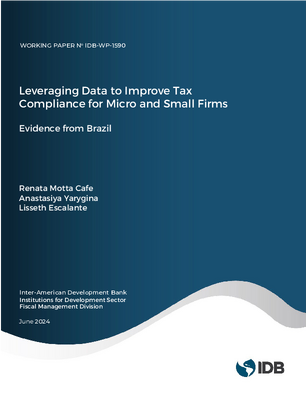Leveraging Data to Improve Tax Compliance for Micro and Small Firms: Evidence from Brazil
Date
Jun 2024
A large body of research has estimated the effects on tax collection of informing taxpayers of their obligations. This paper examines the effects on voluntary tax payments of providing taxpayers with information on their obligations that is collected through massive information cross-checking rather than traditional auditing. This information is inexpensive to collect, but may not be sufficiently accurate to promote taxpayer compliance. We conducted a randomized controlled trial to evaluate the effectiveness of self-regularization interventions on tax compliance among simplified tax regime firms. We examine the treatments that use this information in three different ways: messaging, providing tax compliance manuals, and assisted regularization, in which tax auditors assist taxpayers in the self-regularization process. We find that assisted regularization increased the reported monthly income by 20 percent (US$1,160), which also nearly closed the tax evasion gap and reduced inconsistencies in tax declarations by 67 percent (37-point reduction). The manual and message interventions had positive, albeit smaller, effects. While the assisted regularization intervention had the largest effects, a cost-effectiveness analysis reveals that this intervention is not optimal for smaller firms because of the costs incurred by the tax authority. No effects were observed on firms' tax compliance in declarations filed in the post- intervention periods.
NO




